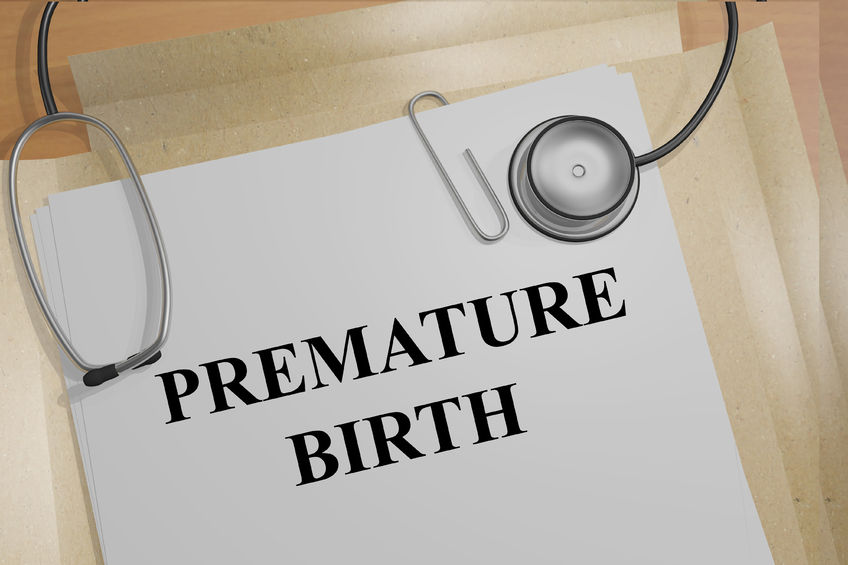Every year, tens of thousands of babies are born prematurely in the UK. Being that a premature birth is considered any birth that occurs prior to the 37th week of pregnancy, your baby could just be one month early and still be considered premature. Of course, there are plenty of cases of babies being born between 23 and 37 weeks as well. The common thread in many cases is that premature birth was totally unexpected.

It is possible to go through what appears to be a very normal pregnancy for the first six months or so, only to begin labour and delivery early. Many different things can trigger premature birth, including:
The first and most important thing to remember if pre-term labour indicates that premature birth is inevitable is not to panic. We have the medical facilities necessary to care for premature babies and their mothers with excellent success rates. Although some premature babies don’t make it, especially those born before 23 weeks, babies born at 27 weeks or later have a survival rate of 80%.
A mother in the midst of premature labour will experience many of the same symptoms a full-term mother would experience. These include backache, labour pains, an increased tendency to urinate, pressure in the pelvis, and nausea that can be accompanied by vomiting or diarrhoea.
The first sign of labour symptoms indicates that the mother should contact her midwife or doctor for further instructions. The midwife or doctor will undoubtedly ask mum to describe the contraction she’s feeling. Mum will also be asked whether her waters have broken and if any accompanying backache feels similar to period pains.
Broken waters are an important indicator here. Sometimes the amniotic sac will break violently, causing amniotic fluid to gush from the vagina. Other times it will be just a small break that results in a gradual trickle of fluid. Furthermore, it is possible for the waters to break even if labour has not started. Breaking waters are serious enough that a mother should contact her doctor or midwife immediately should it occur.
Any possibility that mother is experiencing pre-term labour will mean a trip to the hospital for a medical examination. Once at the hospital, a medical team will determine what’s going on. A number of different conclusions can be reached:
Babies born prematurely need specialised care that can only be provided by a neonatal unit. The good news is that there are facilities with qualified neonatal units all over the UK. The bad news is that not every hospital has one. If your local hospital is not properly equipped to handle premature birth, you will be transferred to a hospital that is.
It should be noted that pre-term labour, because it is triggered by something that is abnormal, tends to proceed much more quickly than full-term labour. If life-threatening conditions exist, the doctor may order a caesarian (surgical) delivery to protect the life of both mother and baby.
It is not uncommon for the parents of premature babies to later say that the birth was the easiest part of the process. Once a premature birth has finished, the real work for many of these babies begins. Parents should be prepared for at least a few minor complications – if not major ones – in the hours, days, and weeks following premature birth.
Almost immediately, mum will know something is wrong because she’s not allowed to hold her baby right away. This is because premature babies often need urgent medical care as soon as they arrive. If complications exist but are not determined to be life-threatening, mum may get a brief introduction before the baby is taken for treatment.
Parents should also be prepared for a lot of tubes and machines. Although it can be terribly agonising to see a baby connected to so much equipment, it may be necessary to preserve the baby’s life. Every situation is different, so there is no way to predict what your baby will need should he or she be born prematurely.
Premature birth almost always requires specialised medical care for an extended amount of time. How long your baby will need to remain in the hospital will depend on how early birth occurred and how serious any medical complications are. It is normal to be overcome with grief during this time, so don’t be caught off guard by it. It will take time for you to work through your emotions and come to terms with circumstances.
Provided your baby experiences no major complications, he or she may be ready to come home very quickly. If not, hospitalisation will be required until doctors are reasonably comfortable that the baby’s health is stable enough to leave. Babies born between 23 and 25 weeks will experience comparatively long hospital stays while those born between 35 and 37 weeks are likely to go home rather quickly.
Whatever the case is with your baby, do not be afraid to ask a lot of questions. Do whatever you can to learn as much as possible about your baby’s health and what will be required to provide care in the future.